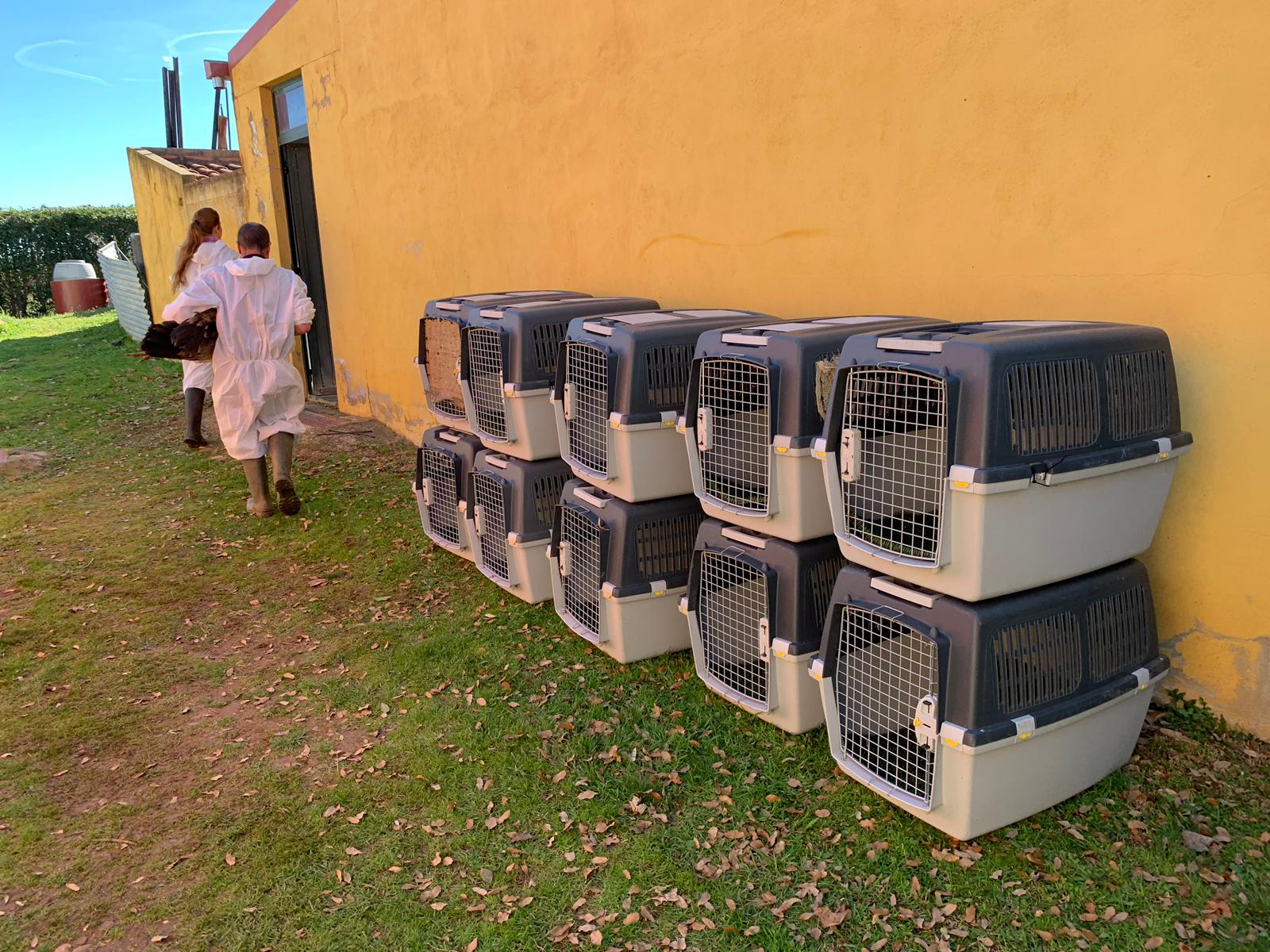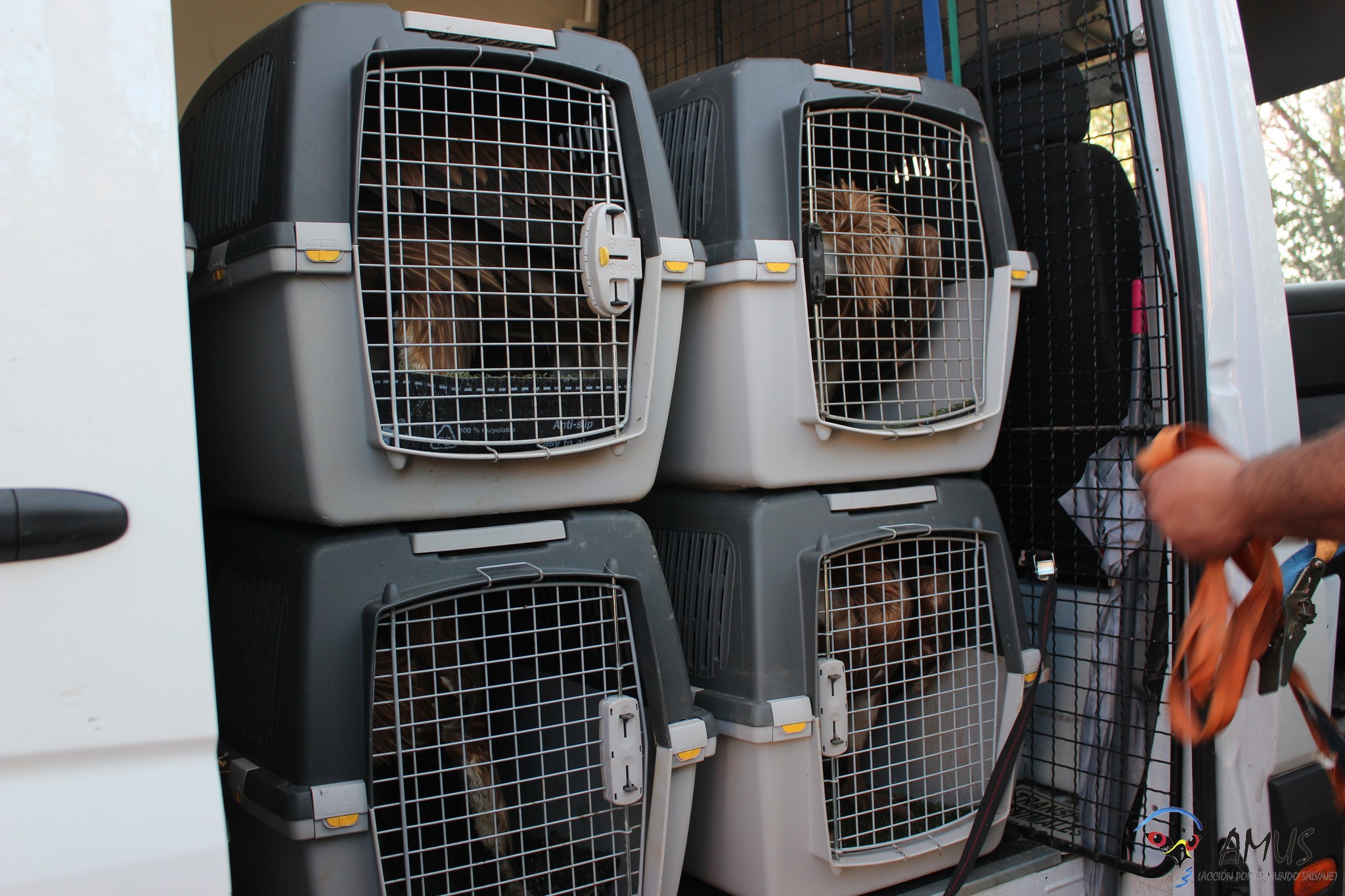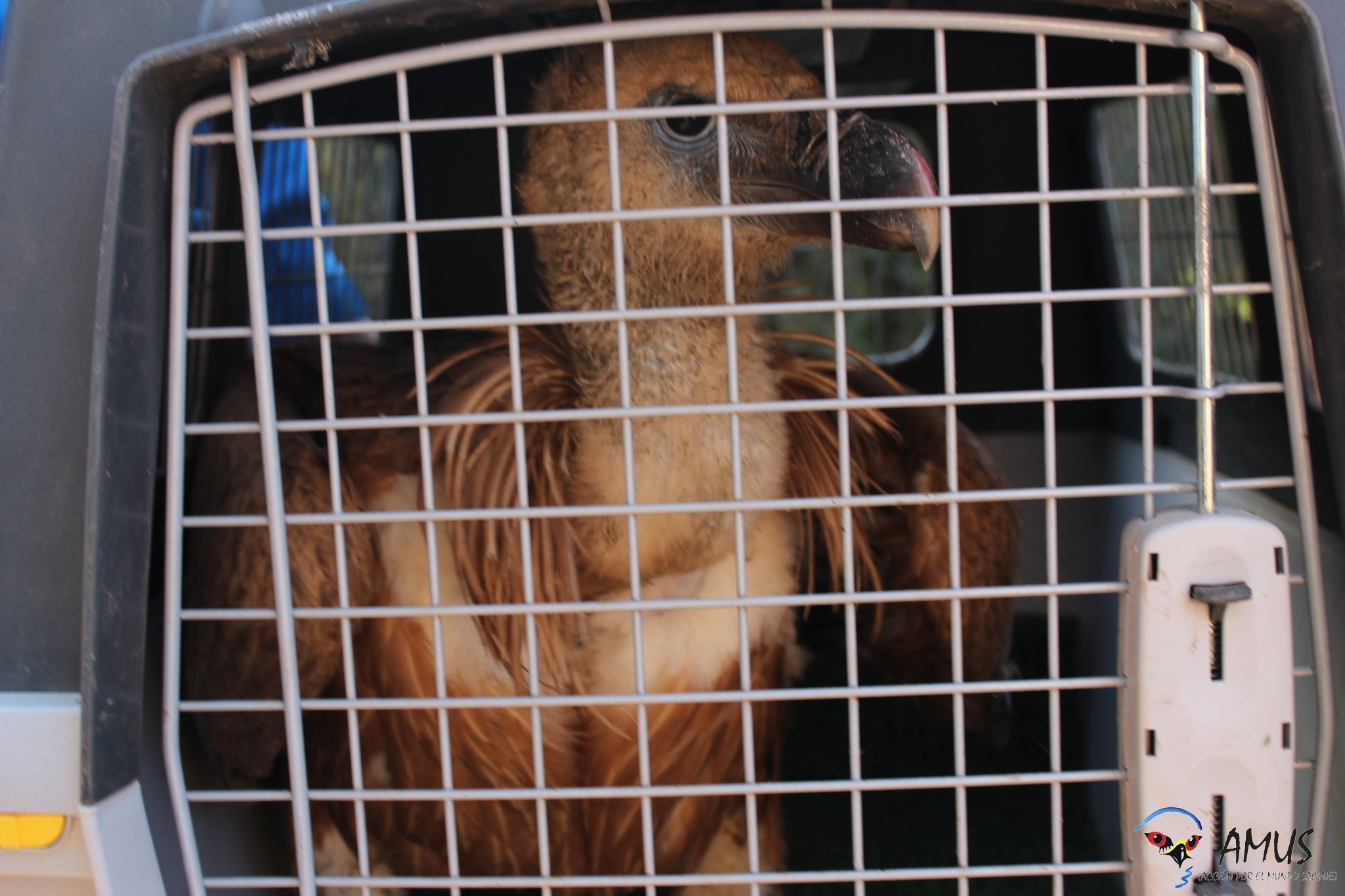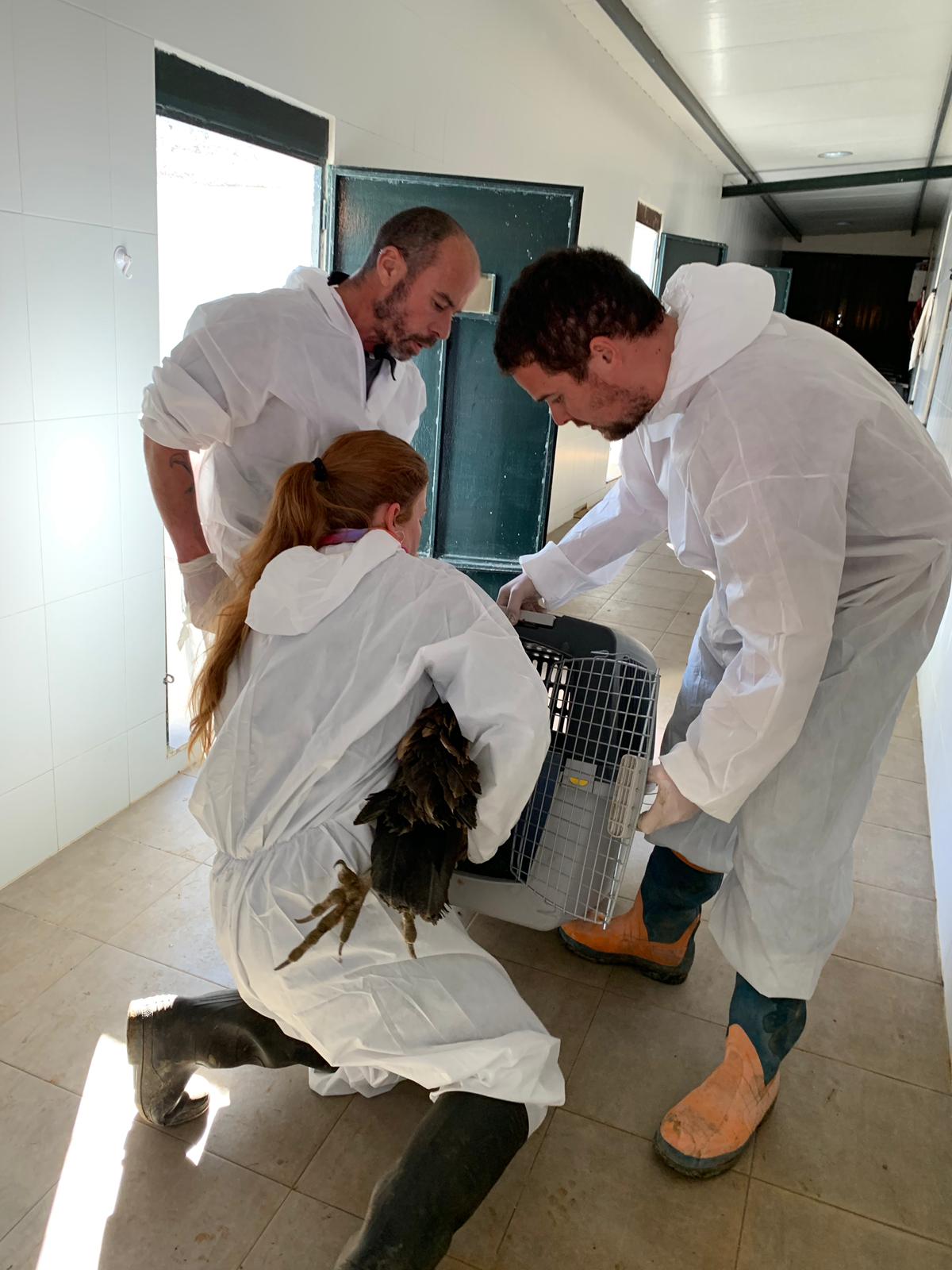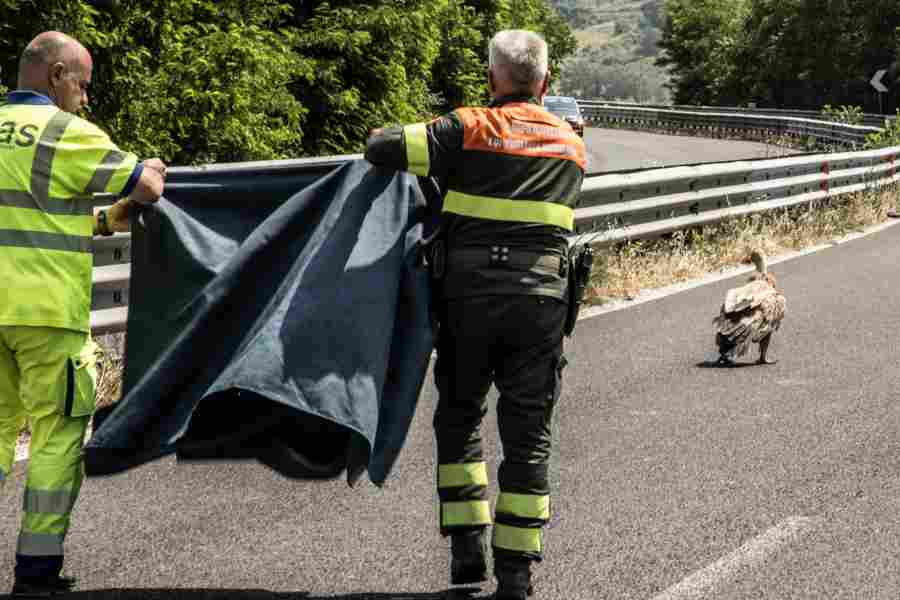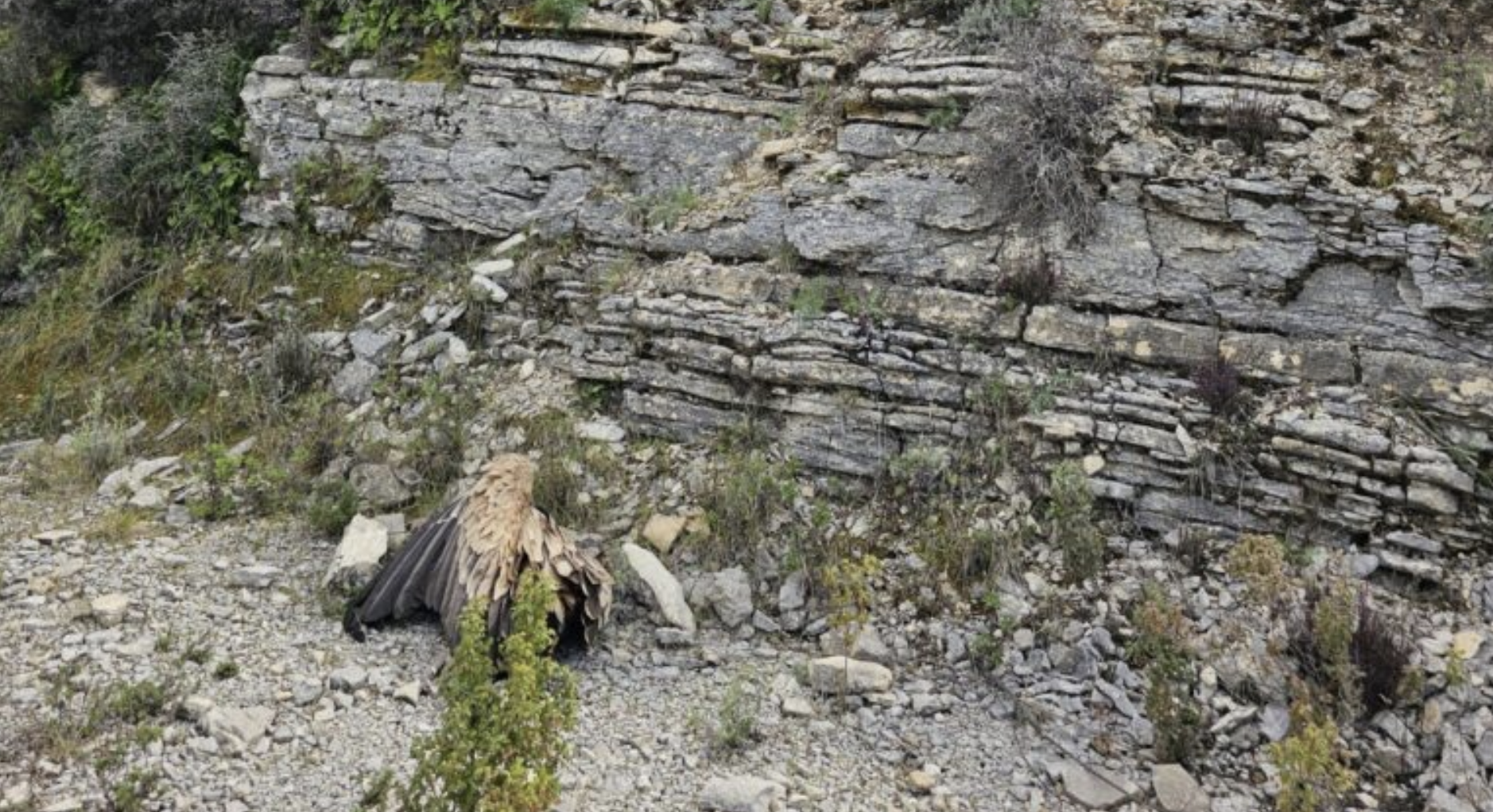
22 Griffon Vultures are currently making their way by road and by sea from the Extramadura region of Spain to their new home in Sardinia for the final release of birds as part of efforts to restock the population of the species on the island.
Recovering birds
The Extremadura region in western Spain is one of the most important sites for vultures in Europe, home to half the breeding population of Cinereous Vultures in Europe and nearly 10 percent of Spain’s 25,000 pairs of Griffon Vultures.
Most of the birds that are heading to Sardinia have spent the last two months in a wildlife rehabilitation centre managed by regional non-governmental organisation AMUS (Acción por el Mundo Salvaje) and Los Hornos, another centre managed by the regional autonomous government, Junta de Extremadura These young birds entered the centre after being found suffering malnutrition and weakness and have been recovered to full health.
As part of the transport the team at AMUS carried out final veterinary checks on the birds before being transferred to traveling crates.
Video: https://www.facebook.com/rtveextremadura/videos/391312328292104/
The birds will now travel nearly 2,000 km over the next 60 hours, first by van to Barcelona then overnight by boat on Tuesday 5 February and arrive in Sardinia in the morning on Wednesday 6 February.

UPDATE – 06/02/19
The 22 Griffon Vultures made it to Sardinia after traveling over night from Barcelona. The birds will spend the several months at an acclimatisation aviary at the Wildlife Recovery Centre in Bonassai getting used to their new surroundings and home before being released into the wild later in the year. Like the other 38 birds released these 22 Griffon Vultures will be fitted with a GPS transmitter to help the LIFE Under Griffon Wings team monitor them as they explore their new home.
This transport is the third and final transport of birds to Sardinia, in total 60 birds will have been transported from Spain to the island to help facilitate the rapid demographic recovery of the small and threatened Sardinian Griffon Vulture population.
Working together for vultures
As well as the project to restock the Griffon Vulture population on Sardinia as part of the LIFE Under Griffon Wings project we have been working on several other projects with partners in Extremadura to release rehabilitated vultures from the region to other parts of Europe to help vulture population recover. These have included AMUS, the regional autonomous government, Junta de Extremadura and regional agencies for the protection of the environment and nature conservation (Consejeria de Medio Ambiente y Rural, Politicas Agrarias y Territorio) and projects such as Vultures Back to LIFE project where recovered Cinereous Vultures will be released as part of the historic reintroduction of the the species to Bulgaria.
Griffons vultures in Sardinia

Distributed over the whole island up to the late 1940s with an estimated population of 800 – 1200 individuals, the population of Griffon vultures in Sardinia dropped rapidly after the Second World War until the outlawing of poisoned baits in 1977. Now the species is restricted to the north-western part of the island and during a 2018 survey saw the population increase from the survey carried out in 2017 and consists of 50 territorial pairs, 37 breeding pairs and over 130 individuals.
LIFE Under Griffon Wings

Led by Sassari University, the LIFE Under Griffon Wings project aims to improve the conservation status of Griffon vultures is improving food availability by establishing a network of farm feeding stations, managed by the livestock breeders themselves, establishing an anti-poison dog unit and developing a communication actions to raise awareness on the threat caused by the illegal use of poisoned baits and carrying out an extensive restocking programme to enhance the small population by translocating between 45 and 60 birds from wildlife rehabilitation centers in Spain to Sardinia

